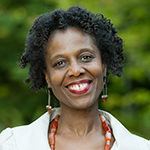2017 SUMMER INSTITUTE:
David Lam Chair in Multicultural Education Course
LLED 480B 96A | LLED 565A 96A
All courses are subject to minimum enrolment. We advise that participants do not finalize any travel arrangements until notified that this course is confirmed.

Trump’s election and victory is a significant landmark of our present history. The discourses of hatred against immigrants, refugees, Muslims, blacks, women, LGBQT have become normalized and have unleashed a rise in islamophobia, homophobia, racism and sexism not only in the US, but also in Canada. At this turbulent time, educators have a tremendous responsibility not only to create safe spaces and welcoming classrooms for their increasingly diverse student population, but also recognize and resist all forms of oppression directed towards racialized vulnerable students.
The aim of this course is engaging students to explore the significant transformation of national demographics in recent years and its implications on society and education. We will examine how the influx of refugees – many of them from Syria, Iraq and Somalia and the changing patterns of immigration bring new challenges. With the increasing number of refugees and immigrants coming to Canada from non-traditional sources such as Asia, Africa, Central America and the middle-East, we witness significant growing sentiments of xenophobia, islamophobia and racism against racialized “others”.
In this course, we will explore how a teacher’s role in a Canadian “vertical mosaic” (Porter et al., 2015) of races, cultures, languages, classes, and identities requires a deep understanding of the limitations of liberal multiculturalism and the necessity to engage with different critical perspectives of multiculturalism which should surpass the superficial tokenistic meanings of culture and difference and which should take risks to deconstruct the prevalent hegemonic mainstream discourses of multiculturalism. This critical approach should question the taken-for-granted assumptions, and should adopt transformative practices informed by critical consciousness and critical pedagogy to trigger a real change.
Learn how to be equipped with the contemporary changing demographics in schools in British Columbia by:
- Examining the theory and practice of critical multicultural and socially just pedagogy.
- Developing a critical multicultural and antiracism framework to understand power and oppression in Canadian society/education and how they operate along many dimensions such as class, race, gender, sexuality, disability, language, and religion.
- Becoming more proficient in ways to organize and design your curriculum and classroom practice for diverse student, especially in contemporary urban environments.
- Developing ideas and transformative strategies through interaction with several guest speakers with expertise in the field.

Annette Henry
Annette Henry holds the David Lam Chair in Multicultural Education at the University of British Columbia. She is a Professor in the Department of Language and Literacy Education and cross-appointed to the Social Justice Institute. Her scholarship examines race, class, language, gender and culture in socio-cultural contexts of teaching and learning in the lives of Black students and Black women teachers’ practice in Canada, the U.S. and the Caribbean. She is a certified k-12 French, Music and ESL teacher and has taught in a range of elementary and secondary schools and universities in racially and culturally diverse settings in Canada as well as internationally.

Ravinder Johal
Ravinder works as a Principal in a diverse secondary school setting. He previously worked as a teacher, department head, and Vice Principal in Ontario. Ravinder recently completed his PhD, focusing on the experiences of second generation youth living in a suburb of Toronto. His research interests include examining the intersecting notions of racial identity, gender, social class, and religion while analyzing the role of school, family as well as community in the lives of youth, and exploring issues related to race and sport.

UBC Vancouver | Face-to-Face
Buchanan (BUCH) | Room B318
1866 Main Mall, Vancouver | Map
July 5 - 21 (MWF only)
9:00am - 2:00pm
Monday, Wednesday & Friday
Registration & Fees
Fees for this program, as well as the opening date for registration, will depend upon your registration type or student category.
UBC Student Registration
To register in the course for credit, students must be admitted to the UBC Faculty of Education (Vancouver campus); please see "Admission to UBC" below. Once admitted, students may register in the credit course.
Current UBC students can register for credit courses through the Student Service Centre, using their Campus Wide Login (CWL).
Registration opens in early March, see the Summer Session dates for the opening registration date for your student category. Many summer programs fill quickly, early registration is strongly recommended.
- Graduate Course (3.0 credits)
LLED 565A 96A | Special Course in Subject Matter Field
Graduate student fees apply; see details below.
- Undergraduate Course (3.0 credits)
LLED 480B 96A | Digital Media in English Language Arts Education
Undergraduate student fees apply; see details below.
Credit tuition is calculated on a per-credit basis. Tuition fees are in Canadian dollars and are reviewed annually by the UBC Board of Governors.
For current UBC tuition, visit UBC Tuition Fees for the Education per credit tuition fees.
UBC Students
For current tuition information please refer to the UBC Calendar.
Visiting Graduate Students
Visiting graduate students who wish to take credit courses must register for those courses and will be assessed tuition fees at the prevailing graduate per credit rate, plus authorized student fees.
Tuition fees are subject to review by The University of British Columbia. The Western Deans Agreement does not apply to this course.
Student Assessed Fees
Certain additional fees apply to students who take courses on campus.
Students who meet certain requirements may opt out of the U-Pass and AMS Extended Health and Dental Plan, during the first two weeks of the term.
To see if you qualify for the U-Pass fee exemption, read the U-Pass FAQ information.
If you think you qualify for an exemption, login to the Student Service Centre (SSC) and click on the Financial Summary tab to navigate to the U-Pass fee exemption page.
If you already have medical/dental coverage (other than BC MSP), you may be able to apply for an exemption if you meet certain requirements and follow the opt-out procedures. Visit the Student Service Centre (SSC) for more information.
Students registered in on-campus courses in the summer session are not assessed Health/Dental Plan fees.
Tuition Fee Certificates
Current UBC students may use Tuition Fee Certificates toward tuition or non-credit fees. The certificates do not cover the cost of course materials, texts, or other fees. Contact Professional Development & Community Engagement for more information: 604.822.2013 | pdce.educ@ubc.ca
Admission to UBC
To register in the course for credit, students must be admitted to the UBC Faculty of Education (Vancouver campus).
Undergraduate Students
To register in courses offered for credit you must be admitted to the UBC Faculty of Education, Vancouver campus.
- If you were previously a student here, you will need to apply for re-admission. If you are not applying for a program, you can apply as an unclassified student to receive credit for this course.
- If you are a UBC Okanagan student, or interested in a program offered by UBC Okanagan, please see Admission Categories on the Application & Registration page.
View the Application & Registration page for details, instructions and application forms.
Visiting Graduate Students
To be eligible for admission as a Visiting Graduate Student to UBC, you must be currently registered in a graduate program with good standing at the home university.
For assistance with the online admission procedures, contact the Department of Language & Literacy Education Graduate Student Support: Chris Fernandez.